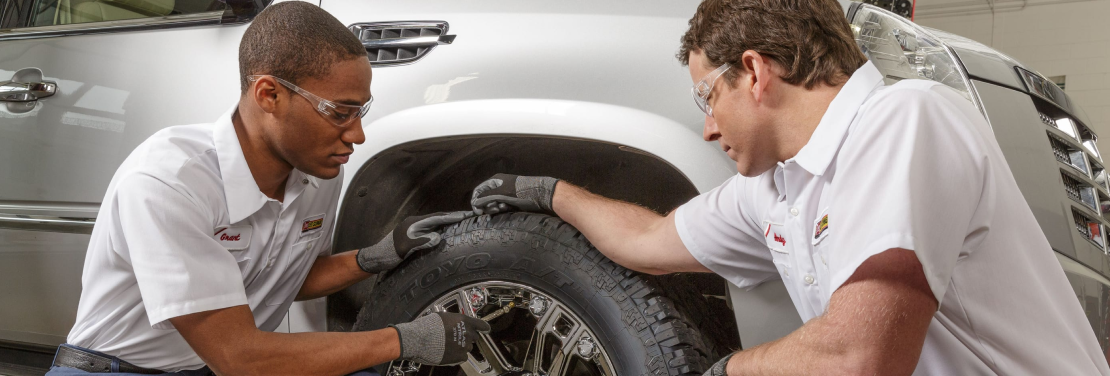Tire Solution: Understanding Tire Pressure Tracking Solutions
Comprehending Tire Stress Monitoring Systems (TPMS) is a vital element of preserving optimum vehicle efficiency and safety and security on the roadway. With improvements in automotive technology, TPMS has become a conventional attribute in modern automobiles, supplying real-time information on tire stress degrees.

Relevance of TPMS
The significance of Tire Stress Tracking Equipments (TPMS) depends on their capability to improve lorry security and performance through real-time surveillance of tire pressure degrees. Preserving the appropriate tire stress is vital for making certain optimum handling, stopping, and overall safety of a lorry. TPMS provides vehicle drivers with prompt responses on any type of overinflated or underinflated tires, enabling prompt adjustments to be made.
Parts of TPMS
Sensing units are generally situated in the tire valve stem or affixed to the wheel setting up, where they gauge tire stress and send information to the control module. Some progressed TPMS models also present the actual tire stress analyses for each tire, giving vehicle drivers with real-time details to guarantee optimal tire performance and security. By keeping an eye on tire pressure constantly, TPMS assists avoid crashes, minimizes tire wear, and enhances fuel performance, making it a crucial part for vehicle security and performance. discount tires morris il.
Kinds of TPMS

On the various other hand, indirect TPMS depends on the car's wheel speed sensing units to keep an eye on tire pressure. This system finds underinflation by contrasting the rotational rates of the wheels. Indirect TPMS is much less costly than straight TPMS, as it uses existing sensing units within the lorry.
While straight TPMS supplies extra exact analyses, indirect TPMS is easier in design and typically requires less maintenance. Both systems have their advantages and constraints, and the option between them typically relies on variables such as price, lorry make, and personal choice. Recognizing the differences between these two types of TPMS can help automobile proprietors make educated decisions regarding tire maintenance and security.
TPMS Upkeep Tips
Effective maintenance of TPMS is crucial for guaranteeing optimum efficiency and safety and security of your lorry. On a regular basis examining the TPMS sensing units for any type of damage or corrosion is vital. Guarantee that the sensors are cost-free and clean from debris that can More hints disrupt their performance. Furthermore, it is suggested to inspect the sensing unit batteries regularly and replace them as needed to assure exact readings. Conduct regular look at the tire pressure degrees and contrast them with the TPMS analyses to guarantee they correspond. If there are any discrepancies, rectify the system following the producer's guidelines. Throughout tire turning or substitute, make sure that the TPMS components are dealt with very carefully to stop any kind of potential damage. Finally, if the TPMS advising light illuminates on the dashboard, address the concern promptly by examining the tire pressures and the general system for any mistakes. By sticking to these upkeep suggestions, you can extend the lifespan of your TPMS and boost the security of your driving experience.
Benefits of Proper Tire Stress
Preserving correct tire pressure, as highlighted in TPMS Upkeep Tips, is vital for gaining the various advantages associated with ideal tire pressure degrees. One of the main advantages of keeping the proper tire pressure is improved gas effectiveness. When tires are appropriately inflated, there is much less moving resistance, leading to better gas economic climate. Additionally, proper tire stress makes certain even tire wear, extending the lifespan of the tires and promoting more here are the findings secure driving problems. With the ideal tire stress, lorries additionally have much better handling and grip, particularly in adverse weather conditions. This can improve overall driving performance and security for the chauffeur and travelers. Furthermore, keeping ideal tire pressure can add to a smoother and a lot more comfy trip by lowering vibrations and sound brought on by underinflated tires. To conclude, the benefits of correct tire pressure surpass just tire durability; they include boosted gas effectiveness, read review improved security, better lorry performance, and overall driving convenience.
Verdict
In verdict, understanding tire stress surveillance systems (TPMS) is important for keeping ideal tire pressure and making certain vehicle safety. By recognizing the significance of TPMS, recognizing with its parts, recognizing the various types offered, sticking to correct maintenance suggestions, and understanding the benefits of maintaining proper tire stress, chauffeurs can enhance their driving experience and lengthen the life-span of their tires. Proper tire pressure is key to risk-free and efficient car procedure.
